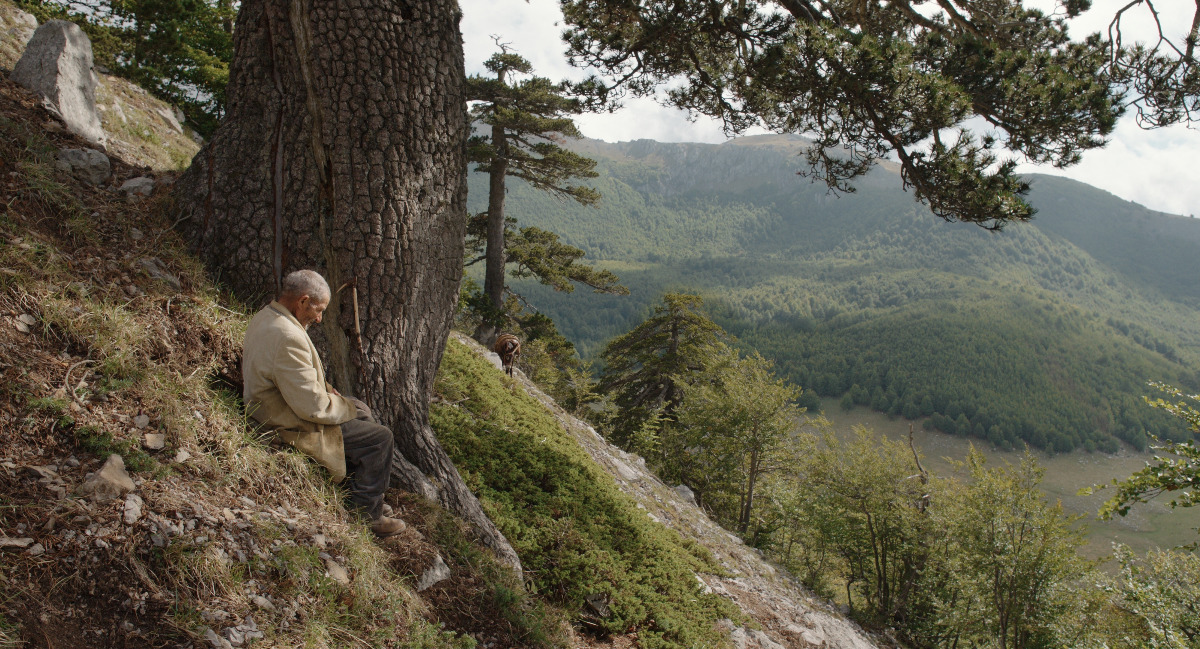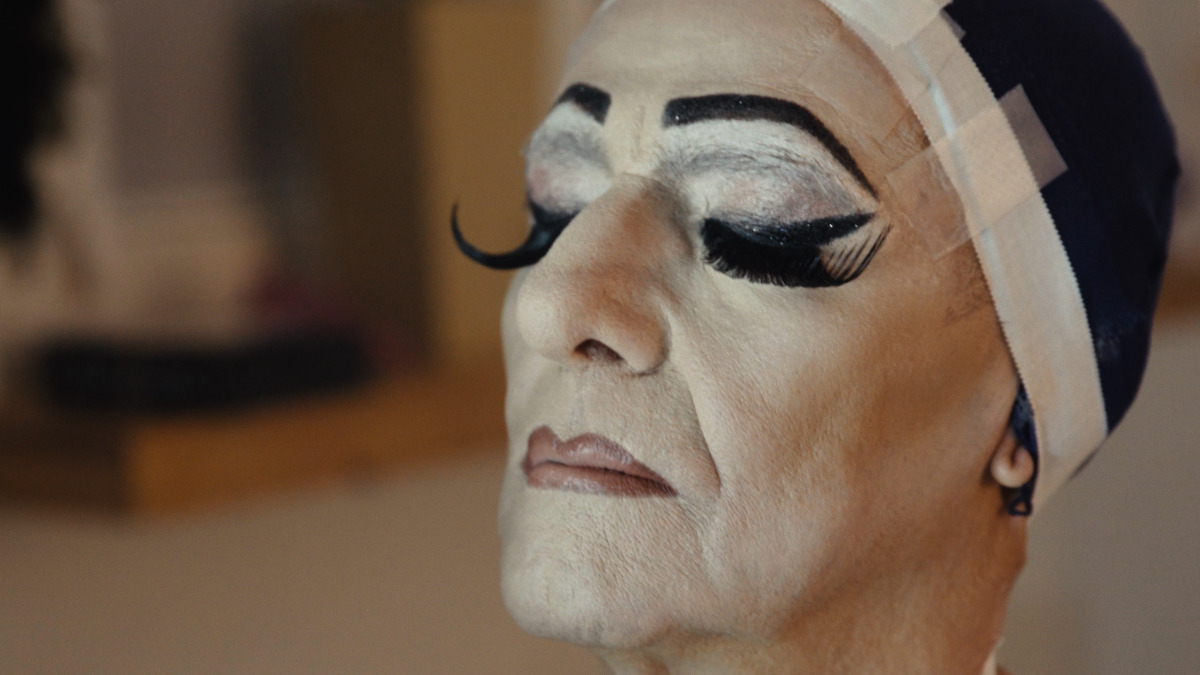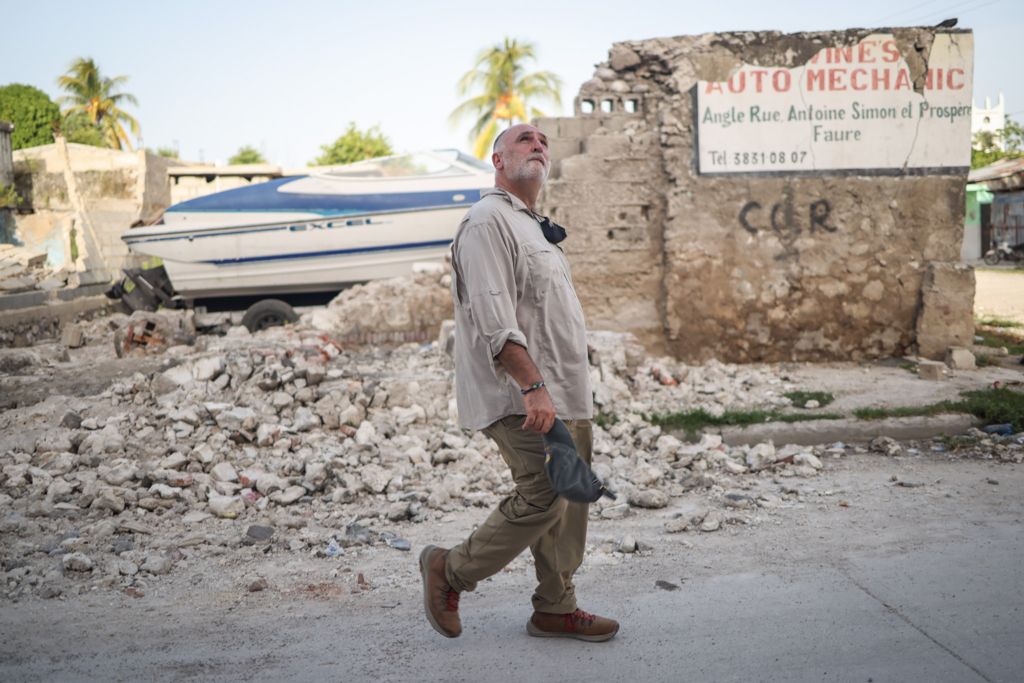Il Buco
(Italy/Germany/France, 93 min.)
Dir. Michelangelo Frammartino
Programme: Markers
For the most vicarious cinematic cave experience this side of The Descent, look no further than Michelangelo Frammartino’s staggering Il Buco. Frammartino isn’t taking us into horror territory, despite some concerning moments where his film’s explorers appear to have been abandoned underground in the very place they’ve come to scientifically probe, that being the Bifurto Abyss in Southern Italy’s Calabria region, once considered the third deepest known cave on the planet. Nor is Il Buco a technological documentary stunt like Werner Herzog’s Cave of Forgotten Dreams, the impressively 3D-rendered but fairly straightforward tour into the rarely-travelled Chauvet Cave in France.
It’s hard to pinpoint exactly what Il Buco (or The Hole, in English) is, or at least to put it into coherent words. Frammartino’s work, though, has always defied any sort of easy classification. His last feature, 2010’s Le Quattro Volte, was a filmic representation of Pythagoras’s four turns theory of the transmigration of the soul, observing as it passed from an old Calabrian man into a fledgling goat, a fir tree, and, finally, a pile of charcoal. It was a work of striking documentary-like naturalism shot in mesmerizing long takes; but it also followed a constructed narrative, resulting in a unique hybrid project that signalled the breakthrough of an idiosyncratic new artistic voice. Frammartino has been fairly quiet in the decade plus since, but only because he’s been deep in the creative process for his follow-up (and quite literally so, becoming an amateur speleologist himself and even getting trapped in a flooded cave along the way).
On the surface, Il Buco is a re-enactment of the 1961 expedition that sent a group of young speleologists into the then-untapped Bifurto Abyss, after they had already completed a number of campaigns in the northern regions of the country. Frammartino uses the same vivid approach as Le Quattro Volte, as we watch gorgeous master shots of the speleologists arriving by train to the nearby town of Villapiana. From there, they travel to the cave entrance–an ominously yawning hole in the Earth at the base of Mount Pollino–set up camp, and proceed to descend. From the looks of the people, equipment, vehicles and general environment, it appears to be 1961. But through Frammartino’s lens, it also feels like a hazy dream, especially with the thick fog that sometimes shrouds the landscape.
The townspeople don’t pay much attention to this landmark enterprise happening in their own backyard, adding to the overall sense of disconnection. Ironically, they instead gather around the television to watch an archival program on the newly constructed Pirelli skyscraper in Milan, a symbol of the drive to push the Italy’s growing prosperity higher and higher into the stratosphere. One person who does raptly watch the cave operation, however, is an old shepherd who lives and works on the surrounding Pollino plateau. Il Buco then begins to intertwine the perspective of the speleologists as they explore the interior majesty of the abyss with the shepherd as he eventually confronts his own mortality.
As in Le Quattro Volte, Frammartino places primacy on simple observation to create a state of total cinematic immersion, rather than relying on any kind of conventional story beats for its allegorical narrative. Up top, we watch the shepherd rhythmically call out to his animals while they calmly graze or we hover over a speleologist sketching a map of the cave systems as it extends into new areas of the page. Down below, others in the group carefully explore and take measurements at each new crevice they uncover. The respect Frammartino has for the methodology of the profession is apparent throughout and he shoots the cave sequences with a spiritual reverence that bubbles up into the happenings above ground. When the shepherd begins to struggle with his health, Frammartino cuts together the subterranean exploits of the speleologists with a physician’s increasingly dire house calls in unique ways that signal a mystical transition towards the afterlife.
But Il Buco also keeps a sly sense of humour in check, lest things get too bleak. As in Le Quattro Volte’s standout one-shot sequence in which a rambunctious sheepdog riotously disrupts an Easter Procession, Frammartino’s penchant for visual gags remains strong, providing a levity to coincide with his existential ruminations. He once more makes captivating subjects out of the animals that roam the land, recording their blissfully nonchalant behaviour with a bemused curiosity. Elsewhere, the speleologists can be just as breezy and playful, especially in one fun scene where two members of the group kick a ball back and forth over the cave’s entrance while we get increasingly invested in which one of them will eventually flub it.
Unfolding at a leisurely pace, Il Buco is ultimately a much-needed sensory relaxer in a world that gets more frenzied and stressful by the hour. Frammartino has become a preeminent experiential chronicler of the natural world, always hyper focused on the intrinsic wonders of life’s everyday processes. His camera is never obtrusive but always exacting in its compositions, so that even a lingering close-up shot of a vein beating in the shepherd’s hand takes on a grandly important aura. Il Buco ponders the intangible mysteries of existence with the same endless inquisitiveness as the speleologists roaming around in the shadowy unknown.
Il Buco premiered at the 2021 Venice Film Festival and screened at Hot Docs 2022.











